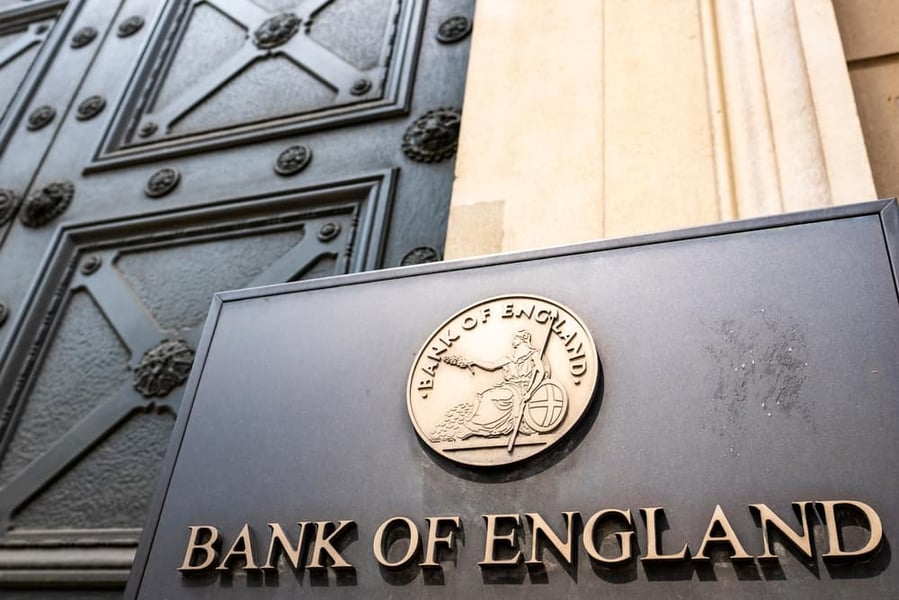Mortgage approvals for house purchase were relatively unchanged, at 67,000 in November, close to the 12-month average up to February 2020 of 66,700.

Net borrowing of mortgage debt by individuals amounted to £3.7bn in November, according to the Bank of England (BoE) Money & Credit data.
Mortgage approvals for house purchase were relatively unchanged, at 67,000 in November, close to the 12-month average up to February 2020 of 66,700.
The effective interest rate on newly drawn mortgages fell to a series low of 1.50%, whilst the rate on the outstanding stock of mortgages also fell to a low of 2.02%.
According to the report, consumers borrowed an additional £1.2bn in consumer credit, on net.
The effective rate on new personal loans increased to 6.43% in November, the highest since March 2020, but remained below the January 2020 level.
Households’ net flow into deposit accounts fell in November to £4.5bn and theeffective interest rate paid on individuals’ new time deposits with banks and building societies rose to 0.37%.
Large businesses borrowed £2.8bn in loans from banks in November, whilst small and medium sized businesses repaid £0.8bn.
Private non-financial companies (PNFCs) redeemed £1bn in net finance from capital markets.
Joshua Elash, director of MT Finance, said:“These arepositivenumbers for the property and mortgage sectors as we kick-off the new year, with the Bank of England reporting that mortgage debt for individuals increased to £3.7bn in November.
“This tells the story of a market finding its feet after the end of thestamp duty holiday in September which led to October’s significant drop.
“Approvals for house purchases are also now close to the 12-month average up to February 2020.
"Approval for remortgaging remains low although we expect this to bounce significantly in the coming months as consumer concern over a rising base rate will persuade more borrowers to tie themselves into a fixed rate on a longer-term basis.
“December’s data islikelyto be stronger yet, although it will be interesting to see how the now seasonal concerns over another lockdown may have dampened the momentum of the bounce back.”
Mark Harris, chief executive of SPF Private Clients, added: “Mortgage approvals remained steady in November, although net borrowing of mortgage debt rose significantly compared with October which had seen subdued numbers thanks to borrowers bringing purchases forward to take advantage of the stamp duty holiday.
“Remortgaging increased in November, although it remains low compared to the 12-month average.
“However, this data only captures those moving to another lender and not product transfers, of which there are likely to be many.
“A significant pick-up in remortgaging is expected this year as the threat of interest rate rises combines with many people coming off existing mortgage deals.
“The average rate on new mortgages fell to 1.5%, a new low, while the rate on outstanding mortgages also fell by 1 basis point.
"While the Bank of England increased base rate in December, lenders remain keen to lend and have plenty of cash to do so, so we expect mortgage rates to be competitive for the foreseeable future.”
John Phillips, national operations director of Just Mortgages, said: “While the market has certainly cooled since the end of the stamp duty holiday, approvals remained robust in November.
“Traditionally, in the build up to Christmas things begin to slowdown, however this past year has been anything but normal.
“The stamp duty holiday drove historic levels of activity in the first three quarters of 2021, and while there was a drop in October, activity bounced-back in November.
“Net borrowing rebounded from the dip in October, and with property prices looking set to continue rising, this trend may continue in the following months.
“While rates are expected to rise following the Bank of England increasing base rate in December, they will be increasing from a historically low starting point.
“The ‘effective’ interest rate on newly drawn mortgages fell to 1.50% in November, and these low rates may help spark activity with buyers looking to capitalise before rates inevitably rise.”



